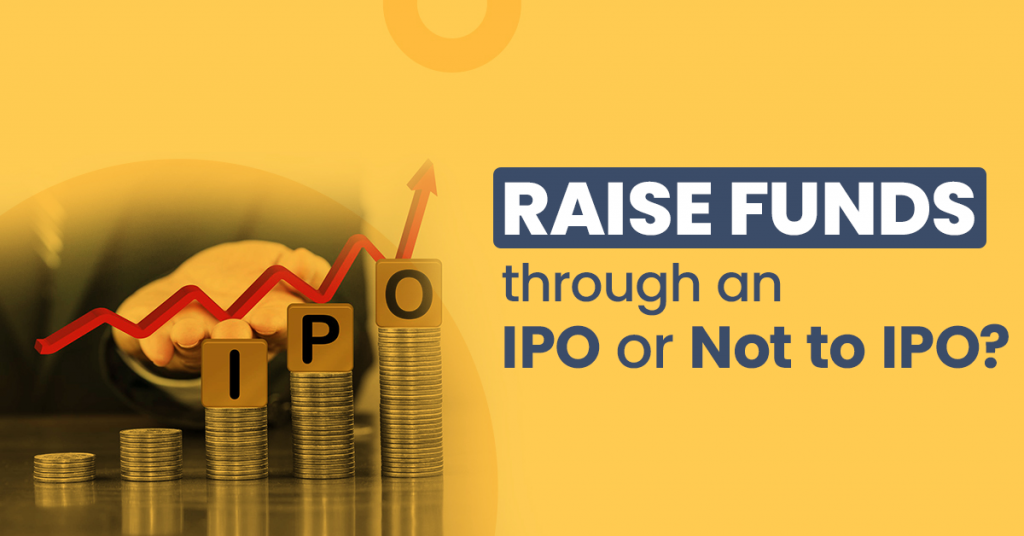
SME IPO – How, Where & Why to raise funds?
What is SME IPOs?
Small and Medium-sized Enterprises (SMEs) are considered the backbone of the Indian economy, contributing significantly to employment generation, GDP growth, and overall economic development. However, access to capital has been a perennial problem for SMEs, limiting their growth and expansion plans. This is where SME IPOs come into the picture.
An SME IPO is an Initial Public Offering of shares issued by an SME intending to raise capital from the public for the first time. In India, the SME IPO market has been gaining traction over the years, thanks to regulatory support and increasing investor interest. According to SEBI data, Since the inception of the dedicated platforms for SMEs IPO, SMEs IPO has been quite popular among the investors.
As per the SEBI data, since 2012 to April, 2023, a total of 767 SMEs have been listed on BSE SME and NSE Emerge raising Rs. 10136 crores. In the year 2018, a record 144 SMEs were listed which is the all time highest and raised a total of Rs. 2409 crores. In 2020, due to the pandemic, the number of filing for IPO significantly dropped and only 27 companies were listed making it lowest number after 2012. Now with the recovery from COVID-19, the number of filings and listed SMEs are increasing.
SME IPOs provide SMEs access to equity capital, which can be used for various purposes such as funding working capital requirements, business expansion, R&D, and debt repayment. They also provide SMEs with visibility, brand recognition, and credibility, which can help them attract new customers and business partners.
How to raise funds via SME IPOs?
SME IPOs are a great way for small and medium-sized enterprises to raise capital and gain access to the public markets. In India, the SME IPO market is regulated by the Securities and Exchange Board of India (SEBI), and the process is designed to be simpler and more cost-effective than traditional IPOs.
To be eligible for an SME IPO, a company must have a post-issue paid-up capital of less than Rs. 25 crore and a net worth of less than Rs. 100 crore. SME IPOs are typically open for subscription for a shorter duration than traditional IPOs, and the minimum subscription amount is generally lower.
Here is a step-by-step process for raising funds via SME IPOs:
1. Preparation: The first step in raising funds through an IPO is to prepare your company for public listing. This involves conducting a thorough analysis of your financials, operations, and management team. You will also need to comply with regulatory requirements and obtain necessary approvals.
2. Appoint an intermediary: You need to appoint a merchant banker, who will help you in the preparation of the draft offer document, prospectus and in getting regulatory approvals from SEBI and stock exchanges.
3. File the draft offer document: Once the offer document is prepared, it needs to be filed with the SEBI for approval. The SEBI will review the document to ensure that all necessary disclosures have been made.
4. Get approval from the stock exchange: Once the SEBI approves the offer document, it needs to be filed with the stock exchange for approval. The stock exchange will review the document to ensure that it complies with their regulations.
5. Finalize the offer document: After getting approval from both SEBI and the stock exchange, the offer document needs to be finalized and printed.
6. Price the issue: You need to determine the price at which the shares will be issued. This is usually done in consultation with the merchant banker and based on market conditions.
7. Open the subscription: Once the price is fixed, the subscription for the shares can be opened. The subscription period typically lasts for 3-4 days.
8. Allotment of shares: After the subscription period is over, shares are allotted to the investors. The shares are then listed on the stock exchange, and trading can begin.
The process of raising funds via SME IPOs is similar to traditional IPOs, but with a focus on smaller companies. It’s important to work with an experienced merchant banker and comply with all regulatory requirements to ensure a successful offering.
What is the importance of SME IPOs in the economy of India?
SME IPOs are considered the backbone of the Indian economy due to their significant contribution to the growth and development of small and medium-sized enterprises. These enterprises are vital to the country’s economy, as they provide employment opportunities, promote entrepreneurship and innovation, and contribute to economic growth. Here are some key reasons why SME IPOs are so important:
Access to Capital: SMEs often face challenges when it comes to accessing capital through traditional channels like bank loans or venture capital. An IPO provides SMEs with access to capital from the public markets, which can help them grow their businesses and fund new projects. This, in turn, can lead to job creation and increased economic growth.
Increased Credibility: Going public through an IPO can help SMEs improve their credibility and reputation in the market. It demonstrates that the company has met certain standards and is willing to comply with regulatory requirements. This can increase investor confidence and make it easier for SMEs to attract customers, suppliers, and other partners.
Increased Visibility: Listing on a stock exchange can increase the visibility of an SME and make it easier for them to attract customers, suppliers, and investors. This can help SMEs expand their businesses and increase their market share.
Job Creation: SMEs are a major source of employment in India, and raising capital through an IPO can help them create new jobs and expand their workforce. This can contribute to the overall growth of the economy and improve living standards for individuals and families.
Development of the Capital Markets: SME IPOs can contribute to the development of the capital markets in India by providing a new avenue for investors to participate in the growth of small businesses. This can lead to increased liquidity in the markets and a more diversified investor base.
What are platforms to raise funds from SME IPOs?
In India, there are two primary stock exchanges where SMEs can raise funds through IPOs: the Bombay Stock Exchange (BSE) and the National Stock Exchange (NSE). Both exchanges have launched dedicated platforms for SME IPOs in recent years to encourage more small and medium-sized enterprises to go public. Here’s a brief overview of each platform:
BSE SME Exchange: The BSE SME Exchange is a dedicated platform for SME IPOs launched by the Bombay Stock Exchange in 2012. The platform is designed to provide SMEs with an easy and cost-effective way to raise capital from public markets. Companies listed on the BSE SME Exchange must meet certain eligibility criteria, such as having a post-issue paid-up capital of less than Rs. 25 crore and a net worth of less than Rs. 25 crore.
NSE Emerge: The NSE Emerge platform is a dedicated SME exchange launched by the National Stock Exchange in 2012. Like the BSE SME Exchange, the NSE Emerge platform is designed to provide SMEs with a simple and cost-effective way to raise capital from public markets. Companies listed on the NSE Emerge platform must meet certain eligibility criteria, such as having a post-issue paid-up capital of less than Rs. 25 crore and a net worth of less than Rs. 25 crore.
Both the BSE SME Exchange and NSE Emerge platforms provide a range of benefits to SMEs looking to raise capital through IPOs, such as reduced listing fees, simplified disclosure requirements, and access to a broader investor base. These platforms have helped to make it easier and more affordable for SMEs to access public markets, which can in turn support economic growth and development.


